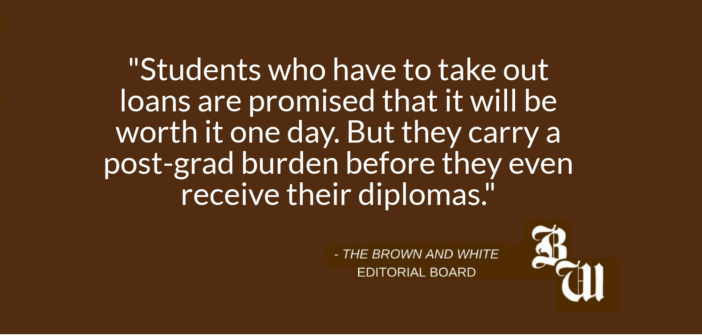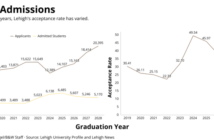In the modern-day American dream, we’re told we must go to college to develop specialized skills, which will give us the ability to make money no matter how much we had to begin with.
We are told that if we work hard, we’ll become successful enough to live comfortably.
The idea of being self-made is an aspiration of individuals from all socioeconomic backgrounds. We all want to become successful on our own merits, and we all want to be proud of our own accomplishments as if we received no help from others.
But if we take a step back and look at the big picture, we see that the concept of being self-made is largely overplayed.
Being self-made can be an illusion — in many cases an individual’s background helped propel them to the top of their industry independent of their work ethic. It doesn’t necessarily take money to make money, but those who come from wealthier backgrounds often have an advantage.
Two prominent figures who embody this false premise are President Donald Trump and Supreme Court Justice Brett Kavanaugh.
Trump’s claim to the presidency was largely related to his riches, which have become a larger topic of discussion when a Forbes investigation lowered his net worth to an estimated $3.1 billion, while The New York Times shed light on the fact that he had received over $413 million from his parents over the years.
It’s an important detail to focus on because on the campaign trail, Trump argued his business empire should be attributed to his impressive Wharton School of Business education. He also emphasized that he only received a “small loan” from his father.
But would he have been able to attend such a prestigious school and come to own such an extensive business empire without any assistance?
In Kavanaugh’s case, when he claimed before the Senate Judiciary Committee that he worked hard without any connections to get into Yale University, he wasn’t telling the full story either. A closer look reveals that he was a legacy admission, thanks to his grandfather.
Both Trump and Kavanaugh have boasted about how they rose to prominence as self-made men, when they should acknowledge how their privileged backgrounds allowed them to thrive as a businessman and college student respectively.
These figures at the center of public attention are sending the wrong message to the general public by ignoring the impact of their privileges.
Smart, qualified high school students are often denied the opportunity to attend top colleges and universities because of financial constraints. Meanwhile, lesser-qualified students may be admitted to these schools based on legacy status or family background. This directly violates the claim that a college experience is a self-made process, as Kavanaugh claimed.
Beyond having connections, there are other opportunities afforded to those with wealthier backgrounds.
Before college, wealthier students can hire SAT tutors and personal college counselors that put them an advantage before they even step foot on campus. During college, wealthier students can afford more opportunities like joining Greek life, living off campus and eating out at restaurants.
During the summer, wealthier students also have the opportunity to take internships without thinking about their compensation, living in expensive places like New York City. There may be more qualified candidates who had to turn down opportunities because they needed the paycheck.
Students who have to take out loans are promised that it will be worth it one day. But they carry a post-grad burden before they even receive their diplomas.
Furthermore, when less privileged students have to take up jobs on or around campus, they are stripped from the opportunity to put more time into schoolwork or extracurriculars that could strengthen a resume or professional appeal.
At the end of the day, we’re dealt a hand that is out of our control. Those unhappy with their hand should work hard to make themselves proud, and those who come from a more comfortable and privileged background should find success on their own merits, too, and recognize the resources that helped them
We need more individuals to acknowledge the factors that played into their success. We need role models who were dealt a good hand and still proved they could do it on their own, becoming successful thanks to their own determination and willingness to work hard.
We need to admit that being self-made is an illusion.






Comment policy
Comments posted to The Brown and White website are reviewed by a moderator before being approved. Incendiary speech or harassing language, including comments targeted at individuals, may be deemed unacceptable and not published. Spam and other soliciting will also be declined.
The Brown and White also reserves the right to not publish entirely anonymous comments.
2 Comments
That’s all well and good, but why should people be made to feel like they need to apologize for their advantages and parents’ hard work? That’s just the way it is. The self-made’s person’s kids and grandkids may find themselves in that position. Should they need to apologize for a legacy of success?
Life is unfair.
Often who you know is more important than what you know.
Lehigh is expensive.
Make the best of your opportunities.
Do good and be happy.
“We need to admit that being self-made is an illusion.” Good thought provoking editorial but for the most part all of us must use the raw materials of our lives and are all self made; some of us have better raw materials. It comes down to what you do with what you have. There are negative raw materials also. Work success is not necessarily the most important thing in life